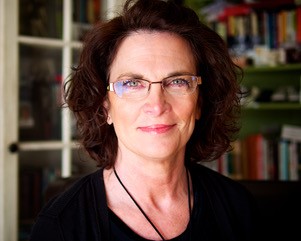OUNCE OF PREVENTION
By Reba J. McMellon, M.S., LPC
The number one reason adult survivors don’t tell their parents about being sexually abused is they didn’t want to make the situation worse. They fear the parent wouldn’t be able to handle the information in a healthy way.
Opening a conversation doesn’t have to be awkward and heavy. Ask your adolescent and adult children what their views are on the recent #metoo movement and the #timesup movement. Then, listen, listen, listen.

Different generations define sexual assault differently. What was shrugged off in the 1970’s may not be considered something to ignore now. Ask your kids what they consider unwelcomed flirtation and unwelcomed physical touch. Listen to their definitions of sexual assault and sexual misconduct. Define as a family what is considered criminal versus what is considered inappropriate. Then discuss how to handle both.
Always include both male and females in these conversations. Males are even less likely to report sexual abuse than females. Open the dialogue. Reduce the stigma, at least in your own home.
Families are as sick as their secrets and as healthy as their dialogue. Let your children know you can handle what they have to say. You can listen. You can respond in a firm and rational way. If not, they are not likely to come to you with a report of abuse. If you find that this is a subject you simply cannot breech with your children, talk with someone about why. Unresolved issues of a parent’s own sexual abuse can lead to the cycle continuing because it has become a taboo subject.
It is not uncommon for the same family member or community person that abused the parent to also abuse their child. The damage will have lifelong consequences by never reporting or revealing the assault. Abuse can become a multigenerational issue that leads to increasingly severe mental health damage.
However, there is a wide range of what is considered a reportable offense. It’s a new era. Sexual misconduct is in the media and out in the open more than ever.
These tips are for parents of adolescent and adult children.
– Open a discussion with your adolescent and adult children. Ask them to teach you what they know about the #metoo movement. In a discussion with my own son, I stated there were things we just learned to put up with, the “lighter” offenses. He said his generation doesn’t think you should have had to; therefore, we have the #timesup movement. Made sense. I liked it. I learned something.
– Be open and be honest with your children.
– People can’t recover from what has not been uncovered.
– The difference between a victim and a survivor is a victim still has an open wound, a survivor has healed and carries the scar. No shame in carrying a scar-Jesus didn’t hide his and neither should we. Scars show trauma has healed.
– If child abuse prevention is a subject you simply cannot talk about with your children, talk with someone about your own experiences. We must break the cycle.
– If not now, when. If you keep putting off these discussions, they will never happen.
Adult survivors of sexual abuse are as high as 20% of the general population. Be mindful how you discuss child sexual abuse when in the general public, you are likely to be within ear shot of someone who has suffered and survived one of the most devastating offenses to ones mental, social, sexual and spiritual development.
“To help heal the world, start with your own family.” – St. Mother Teresa
(Reba J. McMellon, M.S. is a licensed professional counselor with 35 years of experience. She continues to work in the field of mental health as a consultant and is available for public speaking. Reba can be reached at rebaj@bellsouth.net.)
